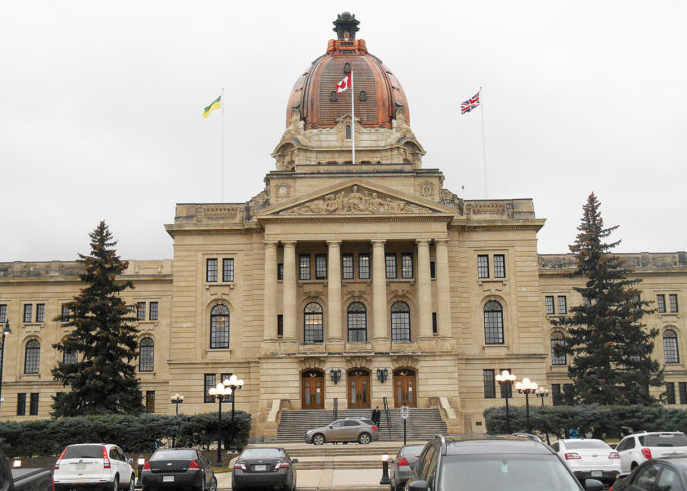Sask. Party touts controlled spending, while NDP points to PST hike in Public Accounts, volume two
The second volume of the province’s public accounts, which details ministry expenses and revenues along with details of salaries and outside purchases/contracts over $50,000, was released Thursday.
The documents for the 2017-18 fiscal year ending March 31, detail how the government arrived at its current deficit of $303 million, a $393-million improvement over the deficit projected in the budget.
The documents show taxation revenue was up, with the provincial sales tax taking in $807-million more than it did last year. Corporate and individual income tax revenue was down, while Crown land sales, oil and natural gas, potash and the natural resources surcharge were all up. The government received a smaller transfer from the Crown Investments Corporation in the fiscal year as compared to the year prior, while revenue from the liquor and gaming commission was up.
Overall, expenses were lower compared to the year prior, but were higher than originally planned. This was led by increased spending in advanced education, environment, health, justice, social services and the officer of the chief electoral officer.
Agriculture, economy, education, executive council, finance, debt servicing, government relations, parks culture and sport, the public service commission, SaskBuilds and the Legislative assembly all came in with expenses below what had been planned.
According to a press release sent out by the provincial government, part of the reason the overall deficit was lower than expected was reduced travel and communications spending.
Total travel expense among ministries was $35 million last year, compared to $37.1 million in 2016-17. Ministers’ travel expenses were down $46,o00 from the previous year, and down 73 per cent from 2006-07.
Communications costs were up $39,000, or 0.6 per cent from the previous year, but at $6.7-million, the total was still the second lowest in the past 12 years.
“Our Public Accounts show that our financial outlook is strengthening,” Finance Minister Donna Harpauer said.
“We’re managing spending closely while continuing to invest in priorities for Saskatchewan people.”
She said the government remains on track to balance the budget in the 2019-20 fiscal year.
While Harpauer saw a rosy picture, NDP finance critic Trent Wotherspoon saw the document as a clear indication of government waste.
“There are some big things that stand out when you look at public accounts volume two,” he said.
“For one, you just see the mismanagement in the black and white.”
The $800-million increase in PST caught Wotherspoon’s eye, as an end to the exemption on construction and restaurant sales has been met with criticism from businesses in those sectors. The funds spent on the Regina bypass also drew Wotherspoon’s ire.
“This bypass really went off the rails. Now it’s the biggest cost overrun in the history of Saskatchewan, a project that went from $400-million to over $2-billion and counting. It’s Saskatchewan people’s dollars that it’s eating up.”
During the throne speech, Premier Scott Moe declared the bypass to be on time and on budget. Wotherspoon disagreed with that assessment, calling it “completely dishonest.
“They just kept moving the goalposts. That was a project they said they had studied to death. $400-million was what that project was pegged at then this government began it. They moved the goalposts and kept punting up what the cost was going to be. Now they’ve locked in an overrun of a billion dollars plus, all in a contract with a consortium from France that shut out Saskatchewan companies and shut out Saskatchewan workers.”
He also decried spending at the GTH and on the carbon capture project.
‘We’re talking about billions of dollars, and then you see who they’re making pay for it. It’s our economy with things like the PST hike.”
Those costs are also seen in the higher-than-expected funding of health and social services.


